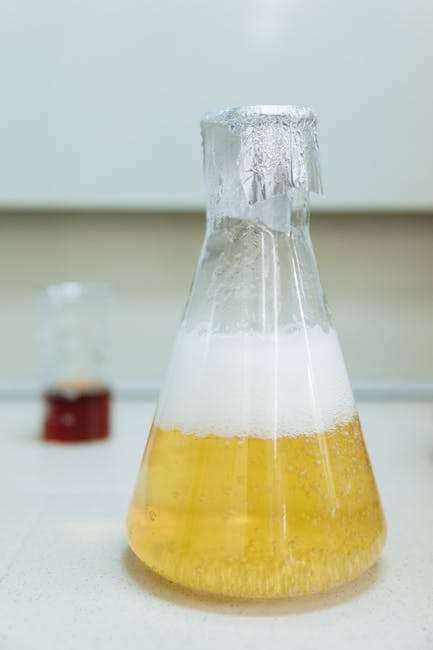The Science Behind Fermentation: Why It’s Good for You
Welcome to the fascinating world of fermentation! ? This age-old process not only transforms food but also offers a plethora of health benefits. Let’s dive into the science behind fermentation and discover why it’s so beneficial for us.
Table of Contents
- What is Fermentation?
- The Health Benefits of Fermentation
- The Role of Probiotics and Prebiotics
- Fermented Foods to Try
- Conclusion
- FAQ
What is Fermentation?
Fermentation is a natural process that involves the breakdown of sugars by bacteria, yeast, or other microorganisms. This process not only preserves food but also enhances its flavor and nutritional value. Fermentation has been used for centuries to produce foods and beverages like yogurt, cheese, sauerkraut, kimchi, and kombucha.
But what exactly happens during fermentation? Essentially, microorganisms consume sugar and convert it into alcohol or acids. This not only extends the shelf life of food but also creates unique flavors and textures. ?
The Health Benefits of Fermentation
Fermentation offers a range of health benefits, making it a fantastic addition to any diet:
1. Improved Digestion: Fermented foods are rich in probiotics, which are beneficial bacteria that support gut health. A healthy gut can enhance digestion and nutrient absorption. ?
2. Enhanced Immune Function: A healthy gut is closely linked to a strong immune system. Probiotics help maintain a balanced gut microbiome, which can boost your body’s natural defenses.
3. Nutrient Absorption: Fermentation increases the bioavailability of nutrients, making it easier for your body to absorb essential vitamins and minerals. ?
4. Mental Health Benefits: Emerging research suggests a link between gut health and mental well-being. Consuming probiotic-rich foods may help reduce symptoms of anxiety and depression.
The Role of Probiotics and Prebiotics
When we talk about fermentation, probiotics often steal the spotlight. But what exactly are probiotics, and how do they differ from prebiotics?
Probiotics are live bacteria that offer health benefits when consumed in adequate amounts. They are found in many fermented foods and are known for supporting gut health. Probiotics can help balance the gut microbiome, improve digestion, and boost immunity. ?
Prebiotics, on the other hand, are non-digestible fibers that feed the beneficial bacteria in your gut. They are found in foods like onions, garlic, and bananas. Combining probiotics and prebiotics in your diet can create a synergistic effect, promoting optimal gut health. ?
Fermented Foods to Try
If you’re new to fermentation, you might be wondering where to start. Here are some delicious and nutritious fermented foods to consider:
1. Yogurt: A classic probiotic-rich food, yogurt is great for breakfast or as a snack. Choose plain, unsweetened yogurt for the best health benefits.
2. Sauerkraut: This tangy fermented cabbage is packed with probiotics and can be easily added to sandwiches or salads. ?
3. Kimchi: A staple in Korean cuisine, kimchi is a spicy fermented vegetable dish. It’s not only tasty but also supports gut health.
4. Kombucha: This fizzy fermented tea is a popular beverage choice for those looking to boost their probiotic intake. ?
5. Miso: A fermented soybean paste, miso is commonly used in soups and dressings. It adds a rich, umami flavor to dishes.
Conclusion
Fermentation is more than just a culinary technique; it’s a pathway to better health. By incorporating fermented foods into your diet, you can enjoy improved digestion, enhanced immunity, and even mental health benefits. So why not give it a try? Your gut will thank you! ?
FAQ
1. What are the best fermented foods for beginners?
Yogurt and sauerkraut are great starting points for those new to fermented foods, as they are widely available and easy to incorporate into meals.
2. Can everyone consume fermented foods?
While most people can enjoy fermented foods, those with certain health conditions, like histamine intolerance, should consult a healthcare professional first.
3. Are all fermented foods probiotic?
Not all fermented foods contain live probiotics. It’s important to check labels for live and active cultures if you’re seeking probiotic benefits.
4. How often should I eat fermented foods?
Incorporating a small serving of fermented foods into your daily diet can be beneficial. However, listen to your body and adjust according to your digestive comfort.
5. Can I make fermented foods at home?
Yes! Many fermented foods can be made at home with simple ingredients and minimal equipment. Just ensure you follow safe fermentation practices.
